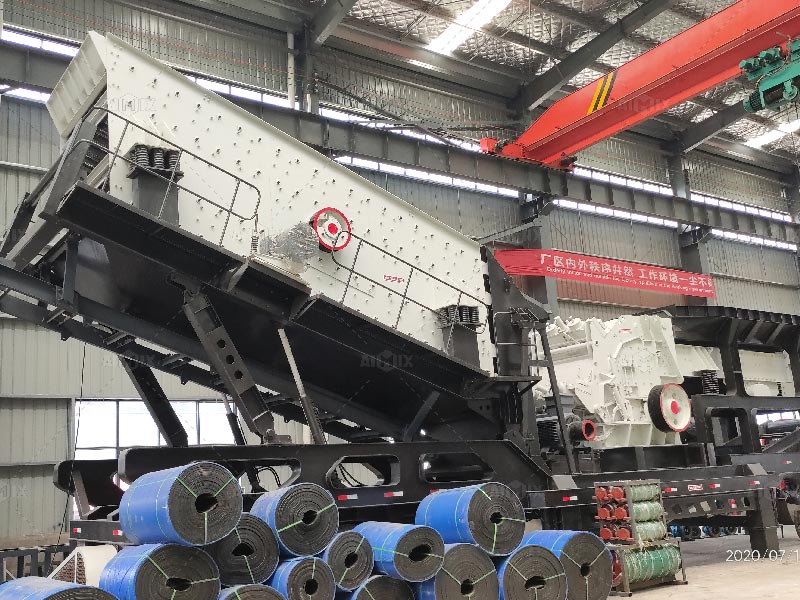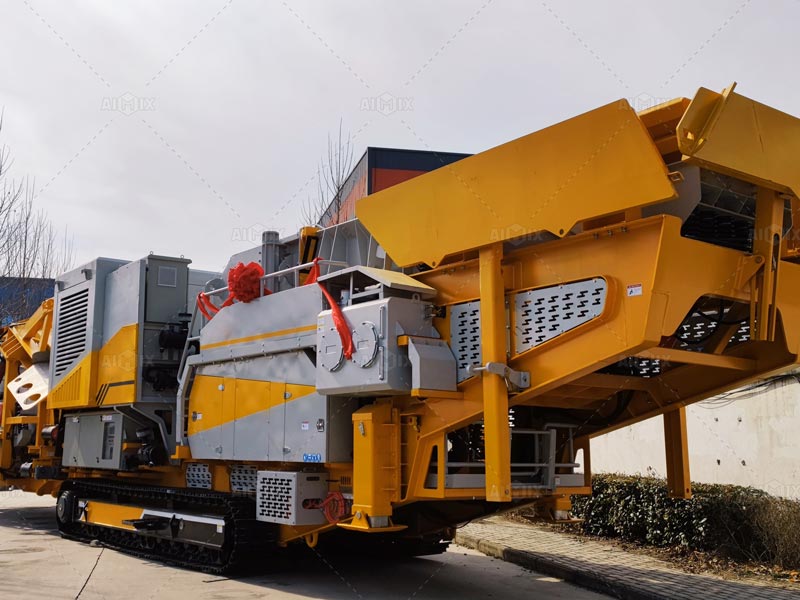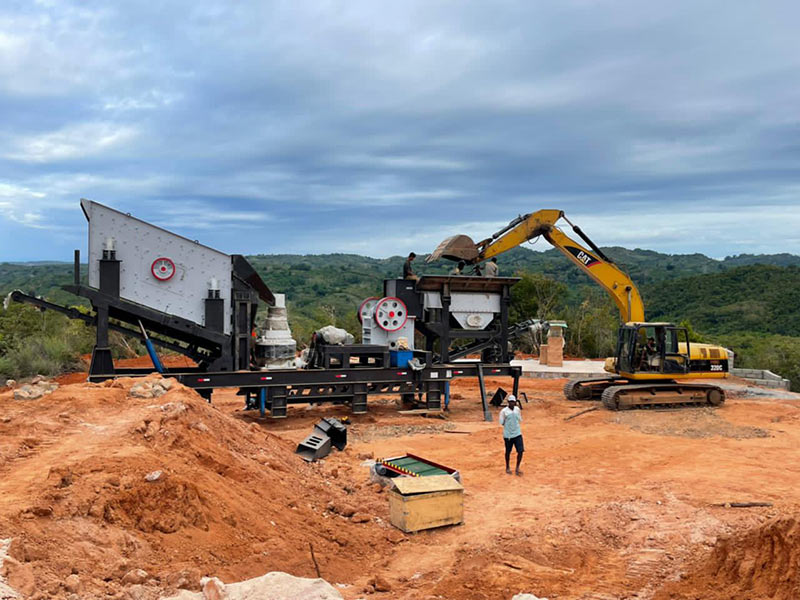When it comes to selecting the right crusher for your project, understanding the differences between mobile stone crusher plants and stationary crushers is essential. Both types offer unique benefits and cater to specific needs, but the cost can be a determining factor. In this article, we will compare the costs, functionality, and overall advantages of mobile stone crusher plants and stationary crushers, helping you make an informed decision for your construction or mining operation.

Initial Investment: Mobile vs. Stationary
Mobile Stone Crusher Plant
Mobile stone crusher plants(trituradora de piedra móvil) offer an all-in-one solution for processing rocks, gravel, and other materials directly on-site. These plants are designed to be moved easily from one location to another, making them highly versatile for projects requiring frequent relocations.
Initial Cost: While the price of a mobile stone crusher plant may be higher than that of a stationary crusher, the added mobility offers significant advantages in the long run. Depending on the size and capacity of the plant, initial costs can range from $100,000 to $500,000 or more.
Advantages:
- Ability to operate in multiple locations without the need for multiple setups.
- Reduces transportation costs of raw materials as the plant can move closer to the site.
- Ideal for short-term projects or sites where materials are spread across a wide area.
Stationary Crushers
Stationary crushers, such as jaw crushers and gravel crushers, are typically installed in one location and are used for long-term operations. These machines are ideal for high-volume production but are less flexible than their mobile counterparts.
Initial Cost: Stationary crushers tend to have a lower initial cost compared to mobile plants, with prices ranging from $30,000 to $300,000 depending on the size and capacity. However, the lack of mobility can lead to additional expenses over time, particularly when transporting materials.
Advantages:
- Lower upfront costs make them appealing for large, long-term projects.
- Designed for continuous operation with minimal downtime.
- Higher processing capacity compared to mobile crushers.

Operational Costs and Efficiency
Mobile Stone Crusher Plant
Operational costs are a crucial factor to consider when comparing mobile stone crusher plants to stationary crushers plants(planta trituradora piedra). Due to the flexibility and portability of mobile crushers, they often have a lower operational cost in terms of fuel, transportation, and manpower.
Fuel Efficiency: Since mobile plants can be transported to the worksite, they can significantly reduce transportation costs associated with moving raw materials. Additionally, mobile plants can be operated with diesel engines, which provide cost-efficient power in remote areas without access to electricity.
Manpower and Setup: Mobile plants require minimal setup time compared to stationary crushers. This reduces labor costs and time spent on site preparation, making them an ideal choice for short-term or intermittent projects.
Stationary Crushers
While stationary crushers may have lower initial costs, their operational expenses can accumulate over time, particularly if the project requires transportation of materials to and from the site. Stationary crushers are more suited for long-term projects where materials are abundant and easily accessible.
Power Consumption: Stationary crushers usually require a reliable power source, often electricity, to function. While this can result in consistent power output, it also limits their operation to areas with a stable electrical infrastructure, increasing utility costs in the long term.
Manpower and Maintenance: Due to their permanent installation, stationary crushers generally require more maintenance and manpower to operate. In addition, the setup process for a stationary plant is more labor-intensive, adding to the overall cost of operation.

Flexibility and Application
Mobile Stone Crusher Plant
The mobility of mobile stone crusher plants is one of their key advantages, particularly for projects that require on-site material processing or for jobs in remote locations. These plants can handle a wide variety of materials, from large rocks to finer gravel, making them versatile across multiple industries.
Application: Mobile stone crushers are commonly used in construction, mining, and demolition projects. Their ability to move from site to site makes them ideal for road construction, bridge work, and other infrastructure projects where crushing material on location is beneficial.
Stationary Crushers
Stationary crushers, such as jaw crushers(trituradora de mandíbula de AIMIX Group), excel in projects where large quantities of materials need to be processed consistently over a long period. These crushers are well-suited for mining operations, quarries, and large construction sites where space is not a limitation, and material can be brought to the crusher.
Application: Stationary crushers are ideal for aggregate production and mining, where the focus is on processing large amounts of material efficiently. Their high capacity and durability make them the go-to option for long-term, high-volume projects.
Resale Value and Longevity
Mobile Stone Crusher Plant
Mobile stone crusher plants generally hold their resale value well due to their versatility and demand across various industries. The ability to move from one job site to another ensures that these plants remain useful even as project requirements change.
Longevity: With proper maintenance, mobile crushers can last for many years, providing long-term value. The key is regular upkeep and the ability to adapt to new locations and project demands.
Stationary Crushers
While stationary crushers can have a long operational life, their resale value may not be as high as mobile gravel crushers(trituradora de grava) due to their fixed installation. However, for operators focused on long-term use, they remain a reliable option.
Longevity: Stationary crushers are built for long-term, continuous use. When maintained correctly, they can provide decades of reliable service, particularly in industries like mining and aggregate production.
Conclusion
When comparing mobile stone crusher plants and stationary crushers, it ultimately comes down to the specific needs of the project. Mobile plants offer flexibility, quick setup, and lower operational costs, making them ideal for projects that require frequent relocations or on-site material processing. On the other hand, stationary crushers provide higher capacity and durability, making them perfect for long-term, high-volume operations.
Understanding the costs, benefits, and applications of both options will help you make the right decision for your project, whether you choose a mobile stone crusher plant or a stationary jaw or gravel crusher.
